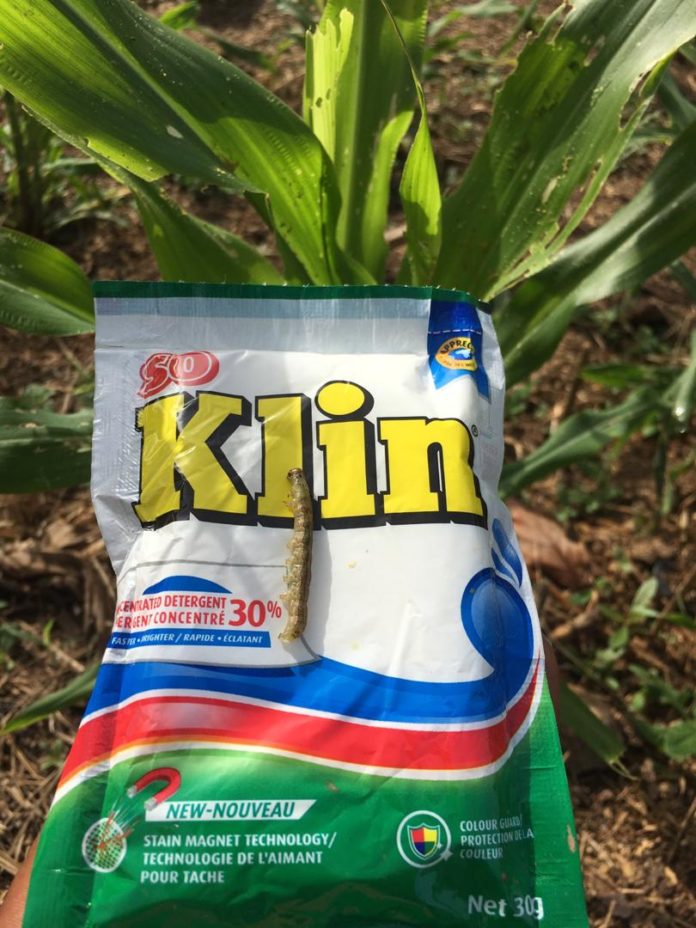The Fall Armyworm (FAW) is a pandemic in the agriculture sector which causes damage to grass and forage, mostly maize. In Ghana, FAW has been a big blow to many maize farmers.
The Fall Armyworm’s ability to destroy maize crop at any stage of its growth became a national issue in the year 2017. It became the center of all major discourse on agriculture. Around April 2018, it was reported that Ghana had lost about US$ 64 million 15 months later after the inception and detection of the worm in the country.
The Fall Armyworm (FAW) is scientifically called Spopotera frugiperda; a name that best describes its feeding habit. The devastating nature of the armyworm makes it a great threat to food security. Research has proven that the worm with its desirous appetite can feed on more than 80 plant species.
Personally, Samuel Abroquah wasn’t exempted from the attack as a youth farmer. In the year 2017, while having his National Service and farming, he decided to put his knowledge to test in combating the common enemy of the maize. In the beginning, he received chemicals from the Ministry of Food and Agriculture District Office. The products came in two folds, one of which was a chemical that turned soapy when mixed with water, gave birth to the So Klin idea.
In the last two years, he has been experimenting with different ways of dealing with the Armyworm. Having an agroforestry background, the use of Neem tree and Senna siamea leaves and preparing solutions from the bark of these trees were the first and foremost options he considered. This worked considerably well until later he realized the Armyworms were gradually building resistance. Consequently, he decided to examine how different cropping systems could help suppress the attack during the 2018 cropping season.
Having two separate farms, he cultivated one under the usual monocropping, which is maize farm and the other intercropped with cowpea a week after the maize had germinated. He observed a few attacks of the worms in the intercrop farm as compared to the monocropping. Again, the rate of spread was relatively slow in the intercropped farm.
The new chemical distributed that year came without soap and relatively the former outperformed this new product. Hence, from 2018 throughout the 2019 season he did a lot of on-farm experiments with a lot of soaps. He finally came out with these conclusions on how to combat FAW which have yielded good results after sharing with some farmers.
Intercrop your maize crop with cowpea or practice crop rotation if your farm is usually under high infestation.
Using So Klin can considerably yield good results when carried out with these measures.
1. Spray exactly three weeks after germination using 15g of So Klin to 15 liters of water. First, dissolve the washing powder in water before pouring it into your spraying machine. Avoiding pouring the washing powder straight into spraying machines since it may not dissolve. Three teaspoons of baking soda can be added if available.
2. Spray closely and allowing the maize crop to wet with the soap solution. Point your nozzle into the cylindrical shape of the leaves and allow some to flow down to the stem. If possible, spray slowly.
3. Spraying should be done as early as possible in the morning before the sun rises.
4. Maximum four weeks after spraying, second spraying can be down, and consequently, the third spraying after three weeks in the worms persist.
5. When spraying acreages which can’t be done in a day, spraying should start from the areas with no infestation towards the areas with the massive infestation.
6. If possible, advise nearby farmers to spray as well. This because their farms can host the worms which can possibly infest your farm later when rains wash the soap away.








